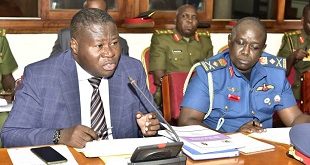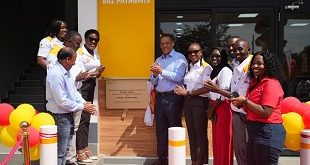
Wakiso, Uganda | THE INDEPENDENT | Landlords in Katooke village, Nabweru Division, Nansana Municipality, are celebrating a significant milestone thanks to a no-cost connection program launched by the Ministry of Energy and Mineral Development in collaboration with Umeme Limited.
This initiative, part of their Corporate Social Responsibility (CSR) efforts, is a component of the Uganda Energy Access Scale-up Project (EASP) which aims at significantly expanding electricity access across the nation.
The Government, with support from the World Bank, is driving the EASP to enhance electricity access for households, refugee and host communities, industrial parks, commercial enterprises, and public institutions.
Miria Kayaga, a beneficiary of the free connection, expressed immense relief, recalling her struggles to secure meters during the COVID-19 pandemic. “This initiative is truly commendable. Within just one month of applying for the free connection, I received exceptional service right at my doorstep. It’s wonderful news!” she exclaimed.
Similarly, Charles Nyanzi, another beneficiary in Katooke B village, praised the program for its affordability, efficiency, and prompt service delivery.
Abdon Atwine, the Assistant Commissioner for Electricity Supply in the Ministry of Energy, is optimistic that the project will strengthen Uganda’s electricity distribution network, expand service connections, and enhance access to off-grid electricity in refugee settlements and their host communities.
Atwine added that the initiative will also support Uganda’s Nationally Determined Contribution (NDC) to combat climate change, focusing on infrastructure development like medium voltage (MV) and low voltage (LV) networks.
The EASP also promotes renewable energy adoption through off-grid solar solutions for households, schools, health centres, administrative buildings, and water supply schemes. It aims to improve biomass efficiency and is expected to benefit over one million people in Uganda, with an estimated total cost of 2.364 trillion Shillings for five years.
Energy and Mineral Development Minister Ruth Nankabirwa, during the project launch earlier this year, pledged that by 2030, all Ugandans will have universal access to electricity as a result of initiatives like the EASP and other energy programs.
Despite progress, electricity coverage in Uganda reached only 42 per cent of the population in 2021, though 98 per cent of electricity is generated from renewable sources, indicating substantial potential for further expansion.
******
URN
 The Independent Uganda: You get the Truth we Pay the Price
The Independent Uganda: You get the Truth we Pay the Price


